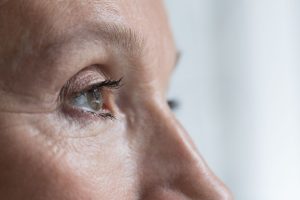
Cataracts are an eye condition that affects the clarity of vision. While common, cataracts may develop earlier in those with diabetes. The experts at Mack Eye Center are passionate about helping patients maintain healthy eyes for life. Below, they discuss the link between cataracts and diabetes, as well as what you can do if you begin experiencing cataract symptoms.
About Cataracts
With age come several changes to the body, especially the eyes. The lens of the eye, which is the clear front portion of the eye, loses flexibility over time. It can also become more opaque and thicker, which significantly affects vision. In addition to diabetes, cataracts may be caused by:
- Cigarette use
- Unprotected UV exposure
- Use of certain substances, such as steroids
- Certain tranquilizers
The Connection Between Cataracts and Diabetes
If you have diabetes, your elevated blood glucose levels can result in changes to the lens of the eye that can increase the speed at which cataracts develop. A few factors can influence how quickly this can happen, including the length of time you have had diabetes, the trends in your blood glucose levels, and whether you have macular edema, which is a condition characterized by the buildup of fluid in the macula. Cataracts may not be noticeable to you in its early stages, or symptoms can develop quickly.
Symptoms of Cataracts
Those with cataracts may experience the following symptoms:
- Vision that appears cloudy or blurry
- Double vision
- Halos around sources of light
- Light sensitivity
- Issues seeing in dark environments
- Faded colors
Cataract Treatment
If you suspect you have cataracts and are experiencing common symptoms, you may be able to improve your vision by making special accommodations for yourself and your environment, such as wearing anti-glare eyeglasses. However, cataract surgery may also be an option for you. This safe and effective procedure involves the replacement of the clouded lens of the eye with an artificial lens, also called an intraocular lens. At Mack Eye Center, bladeless cataract surgery, which uses a femtosecond laser for enhanced results, is offered.
A key component of cataract surgery is the patient’s choice of IOL implants; these include monofocal lenses and multifocal lenses. Our experts will provide additional information about each lens during your consultation to help you arrive at the best decision for your needs.
Learn More
Diabetes can accelerate the progression of cataracts, greatly compromising your vision in the process. However, effective treatment is available to you. Schedule a consultation to learn more about cataract surgery at Mack Eye Center.

